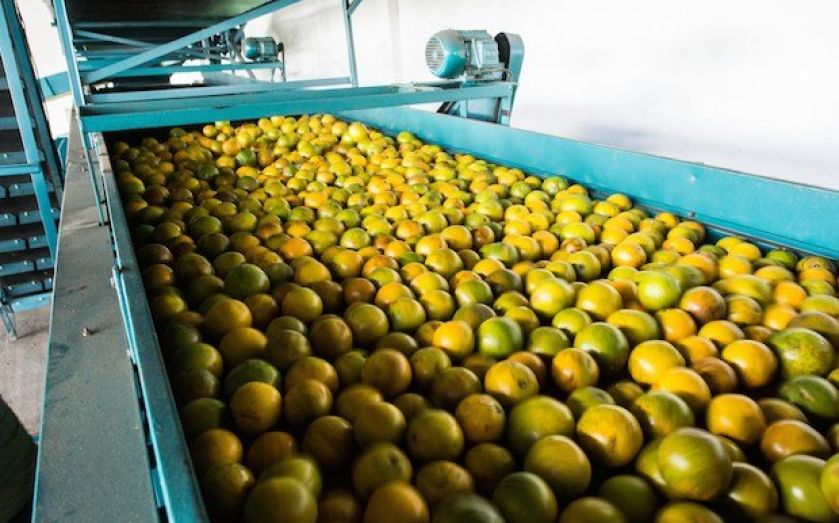Why breakfast staples could be about to get more expensive

The surge in coffee futures documented over the last couple of weeks isn’t the only thing that could up the cost of breakfast.
A Brazilian drought, which significantly damaged crops, is pushing up prices. Changes will most likely felt by global wholesalers over the next couple of months as harvests begin, says Thomas Pugh, a commodities economist at Capital Economics.
The drought also hit citrus fruit production. That’s been coupled with the spreading of a deadly bacteria across orange crops in Florida, the harsh winter the US experienced, which has affected crops elsewhere in the country, and a citrus greening disease.
Production's down to its lowest level in almost 30 years. This has led to a price spike in the country, hitting consumers. The price for concentrated juice reached its highest in two years, to $1.65 (98p) a pound.
Brazil’s orange output is nearly as high as the US (the world’s second-largest producer), China and India’s combined, and it exports nearly 99 per cent. Almost all the US’s production is concentrated in Florida.
And it's not just coffee and orange juice currently feeling the heat when it comes to breakfast favourites. There’s also an epidemic among piglets, the awful porcine epidemic diarrhoea virus, which has infected US, Canadian and Mexican herds.
Again, this is bad news for US bacon eaters, with prices up seven per cent from May last year – but it actually presents something of an opportunity for EU providers, including those in the UK.
Speaking to Farmers Weekly, Mick Sloyan, BPEX director, says: “Our prices in the UK are higher than the EU at the moment, which is putting downward pressure on our market, while EU prices are likely to rise and come closer to our prices. This will have a positive impact on the EU and also stop our prices falling too much.”
While prices continue to climb for bacon, eggs and milk in the US, dairy products are getting more expensive in the UK too. That shouldn’t be too much of a worry, though – it probably won’t be consumers who take the hit.
Rising prices and falling costs, ongoing price wars between the Big Four, with Tesco, Sainsbury’s and Co-op Food cutting the price of milk to £1 for two pints last month, and alterations to farming contracts means a marginally better deal for farmers and consumers, with supermarkets’ margins impacted the most.
So while we keep a beady eye on our arabica coffee – prices soared 7.7 per cent to a 26-month high in the futures market yesterday, but we’ll have to wait a month for the harvest to begin in earnest – other products shouldn’t see the strong upward pressures felt in the US.